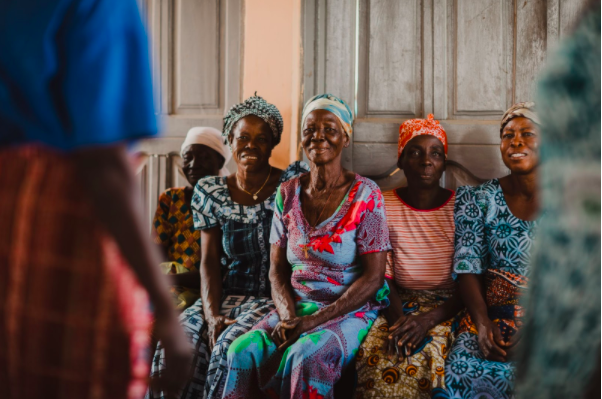SHEA BUTTER - OJOBA COLLECTIVE
The women behind the product
The women of Bolgatanga, Ghana, expertly whip and knead large pans of liquor. The raw, enigmatic scent of Earth rises from them, hinting at what the molten contents will become.
The Frafra are traditionally subsistence farmers - growing crops to sustain their families rather than to sell. They work small plots of land throughout the wet season and save food for the dry season - known locally as ‘the hungry season’ due to low crop yields.

In the past, women of the Upper East Region of Ghana were forced south each year by the arid conditions.The necessity of finding work often meant they were separated from their children and community.
Welcome change arrived in the form of the Ojoba Women’s Shea Cooperative, which took advantage of the karite trees that grow wildly in the local environment. The women themselves brought skillsets passed down through generations, including the tried-and-tested method of processing shea butter by hand.
First they collect, sort and wash the nuts, picking out any blackened ones that could compromise the quality of the butter. The good nuts are then removed from their fleshy pods and boiled, before being dried under the intense heat of the African sun.
After being scrubbed clean and dried again, the nuts are fed through a simple crushing machine so only a chunky crumb remains. This crumb exposes the inner flesh, which is roasted over a smoky, open fire until it becomes almost praline-like.
At this stage, it is pressed mechanically into a liquor that resembles melted chocolate, before being whipped by hand using rhythmic, sweeping motions to form a dense layer of shea butter on top.
The 500-strong cooperative provides the women with a reliable source of income all year round. Outside of the farming season, scarcity of work had previously forced many of the women, and their children, to leave the area each year.
Now, they can offer material as well as emotional assistance to their families, and can afford school fees and national health insurance. Through a microfinance scheme, co-operative members also have the opportunity to apply to borrow funds to set up their own businesses.
As self-improvement and ambition flourishes, the group continues to succeed, and introduce new, regenerative ventures. Recently the women celebrated the opening of their new community library - the first rural library in the Upper East Region district.
“I always feel happy and strong when I’m with my women,’ says senior co-operative member Atanpoka Abongo. “Sometimes I’ll have a problem at home that I think is too difficult, but when we’re sharing ideas I realise that I can handle it. They encourage me to face anything.”

